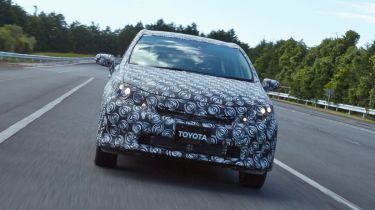Toyota FCV Concept review
We try the Toyota FCV fuel cell prototype in Lexus body

This Toyota FCV Concept reveals there’s a bright future for hydrogen fuel cell vehicles. The tech is practical and refined, but it’s still hard to justify. Before it arrives, more has to be done to reduce the cost, and there clearly needs to be a refuelling infrastructure in place. A 300-mile range means nothing if you can’t find anywhere to fill your tanks.
At last month’s Tokyo Motor Show, Toyota unveiled its Fuel Cell Vehicle (FCV) concept, which will inspire a production car bosses say will go on sale in the UK in 2017. Auto Express has tried the hydrogen tech that’ll power that car, hidden underneath the body of a Lexus HS 250h.
At its heart is a hydrogen fuel stack – fitted under the passenger seat – while there are hydrogen tanks beneath the rear passenger seat and under the boot. As a result there’s no effect on interior space.
In the stack, hydrogen reacts with oxygen to produce electricity and water vapour. That power goes to a 135bhp electric motor under the bonnet, which can keep spinning for around 300 miles on a full tank before needing to be refilled – a process that takes three minutes if you can actually get your hands on some hydrogen.
It feels just like an electric car to drive. Acceleration is brisk off the line, due to the motor’s instant response, and speed builds smoothly. There is one subtle difference, though: the hydrogen compressor makes a whining noise while driving, which is noticeable above the faint hum of the electric motor.
Still, the car is surefooted – as the heavy fuel tanks are mounted low down, there’s a low centre of gravity. The best news about the FCV is that, unlike Honda’s FCX Clarity, we’ll actually see it in the UK. The bad news? It’ll cost around £60,000 – a lot for a Toyota saloon you’ll struggle to find somewhere to fill up.
At the moment, the hydrogen car faces the same ‘chicken and egg’ problem as the electric car – the infrastructure isn’t in place as there’s no demand for it, and there’s no demand as there’s no infrastructure.



